Special Materials Webinar: Lab2Slab2Practice: Framework for a Faster Pace of Implementation of Novel Concrete Materials and Technology
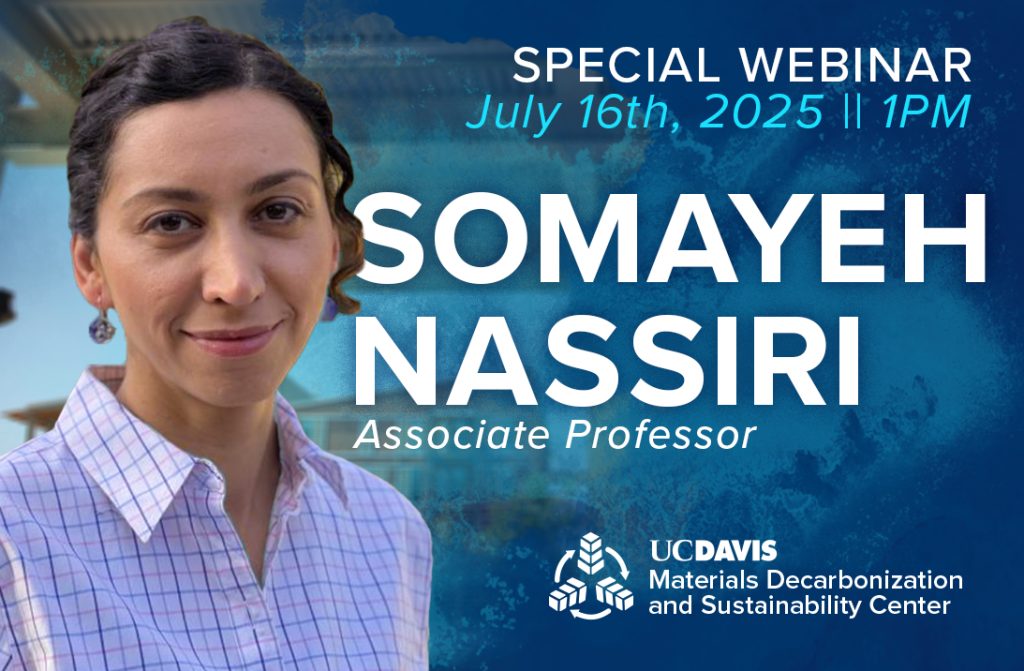
Wednesday, July 16th, 2025 | 1:00 – 2:00 pm Somayeh Nassiri, Associate Professor of UC Davis and Principal Investigator at the University of California Pavement Research Center Register to Attend Online Lab2Slab2Practice presents a comprehensive risk management framework for accelerating the adoption of low-carbon concrete into standard practice based on systematic evaluation. The framework draws […]
Energy Bites May 29, 2025
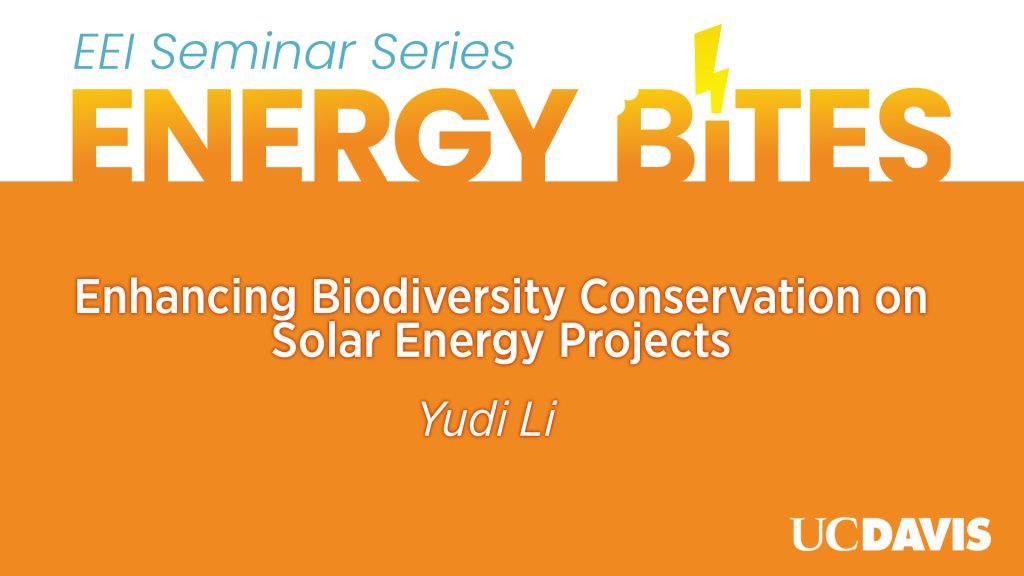
Thursday, May 29th, 2025 | 12PM-1PM | EEI Conference Room Yudi Li, Wild Energy Center Watch Video
Energy Bites May 15, 2025
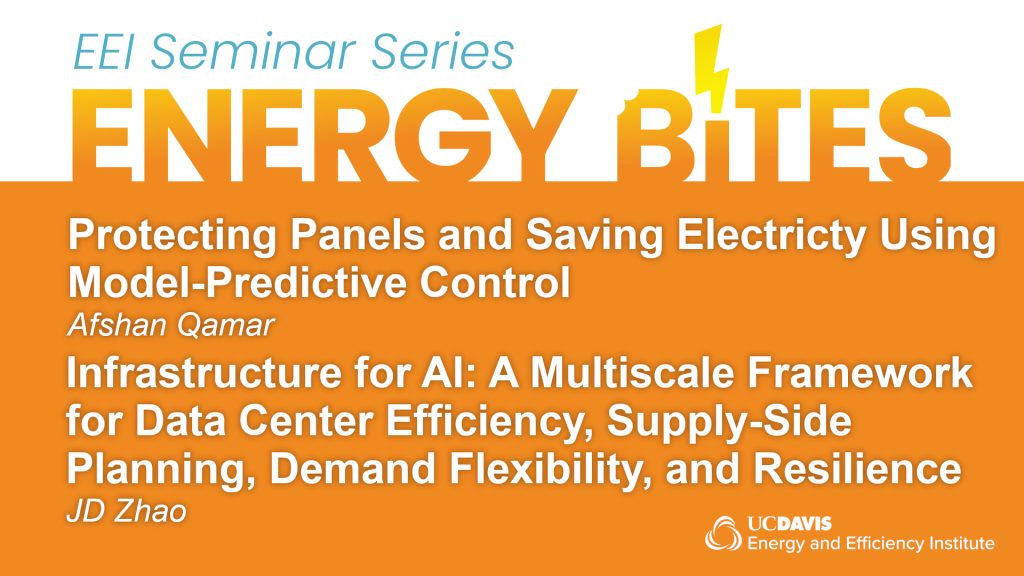
Thursday, May 15th, 2025 | 12PM-1PM | EEI Conference Room Afshan Qamar, Energy Systems PhD Candidate JD Zhao, Energy Systems PhD Student Join us this Thursday, May 15th at EEI for our Energy Bites lunch and a talk featuring two of our energy researchers sharing their latest work! Protecting Panels and Saving Electricty Using Model-Predictive Control […]
Energy Bites May 8, 2025
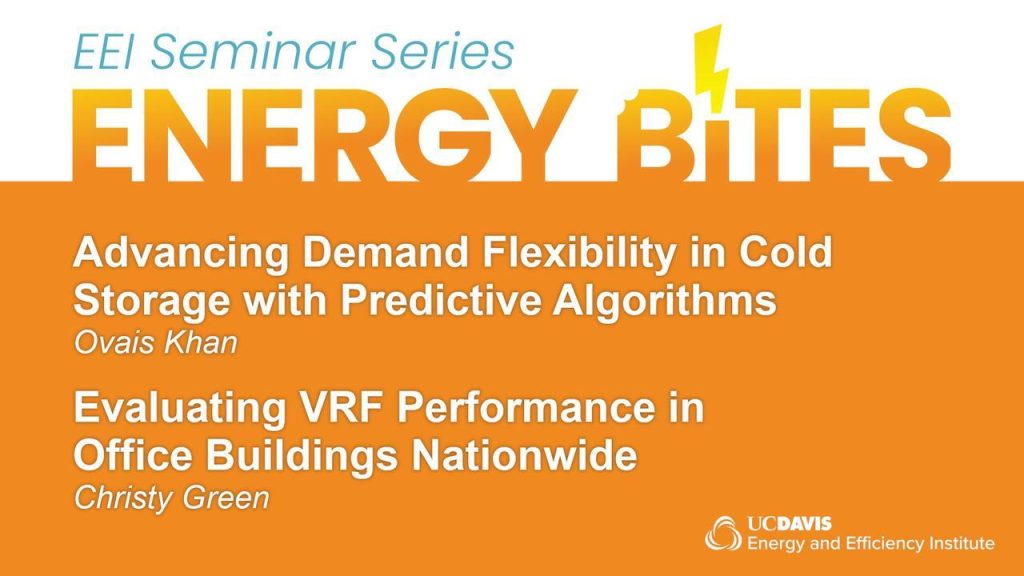
Thursday, May 8th, 2025 | 12PM-1PM | EEI Conference Room Ovais Khan, EEI Graduate Researcher Christy Green, WCEC R&D Engineer Watch Video Advancing Demand Flexibility in Cold Storage with Predictive Algorithms Ovais Khan, EEI Graduate Researcher Cold storage facilities are energy-intensive operations with significant potential for load flexibility. This presentation explores an integrated approach that leverages machine learning to […]
Demand Flexibility Seminar Series: Harnessing Industrial Data for a Smarter, More Flexible Grid
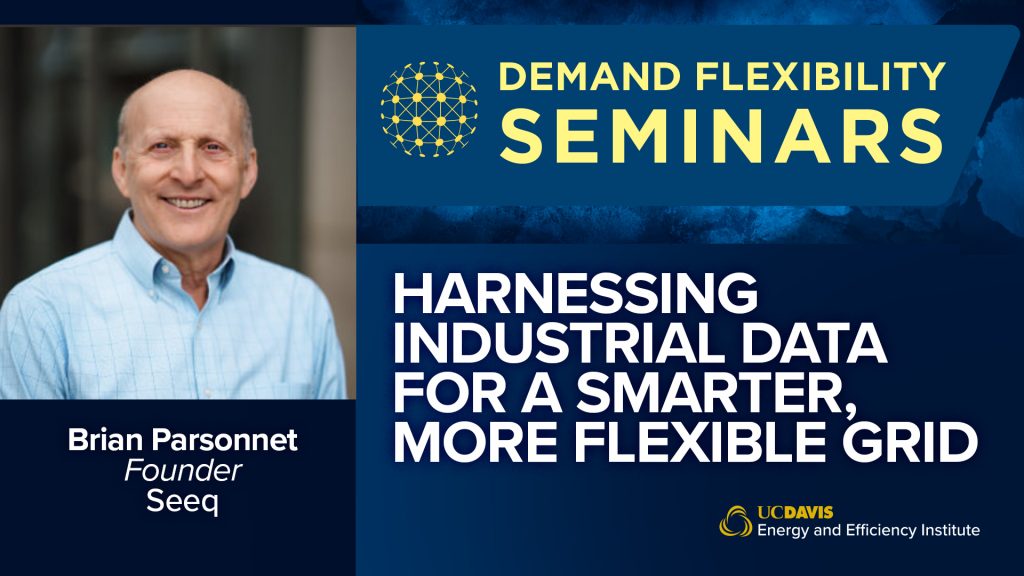
Wednesday, May 7th, 2025 | 9:00 – 10:00 am Brian Parsonnet, Founder, Seeq Watch Video Join us for the next event in our Demand Flexibility Seminar Series. Our featured speaker is Brian Parsonnet, founder of Seeq, a global leader in advanced industrial analytics and AI. With more than 40 years of experience spanning machine learning, […]
Energy Bites May 1, 2025
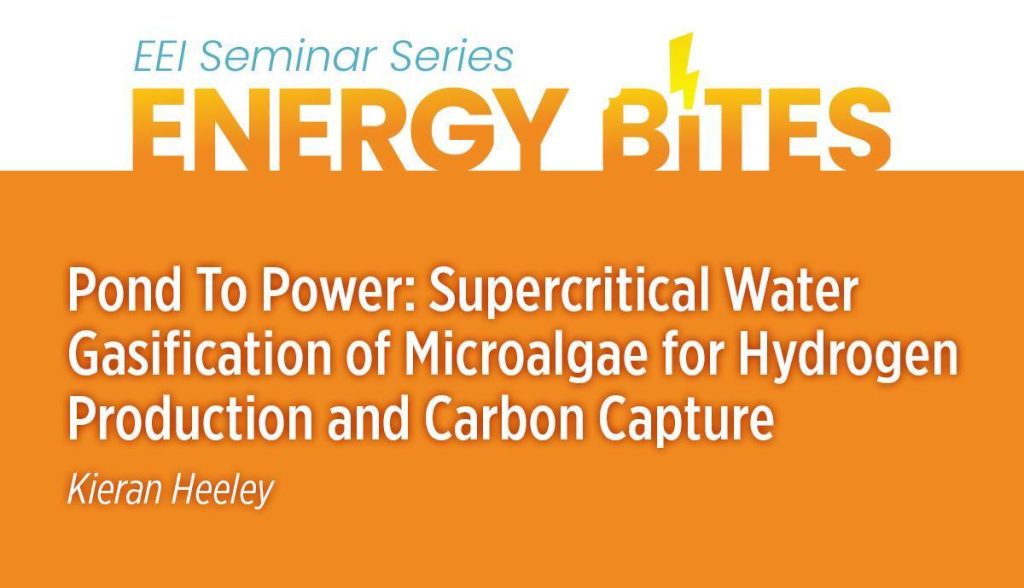
Thursday, May 1st, 2025 Kieran Heeley, Postdoctoral Scholar, UC Davis Spang Lab Watch Video Join us on May 1st at EEI for our Energy Bites lunch and a talk with Kieran Heeley, a postdoctoral scholar working at the intersection of food and energy systems. Heeley will share insights from his research on turning microalgae into hydrogen through […]
Demand Flexibility Seminar Series: How Demand Flexibility and Virtual Power Plants Can Build a Cleaner, Cheaper Grid
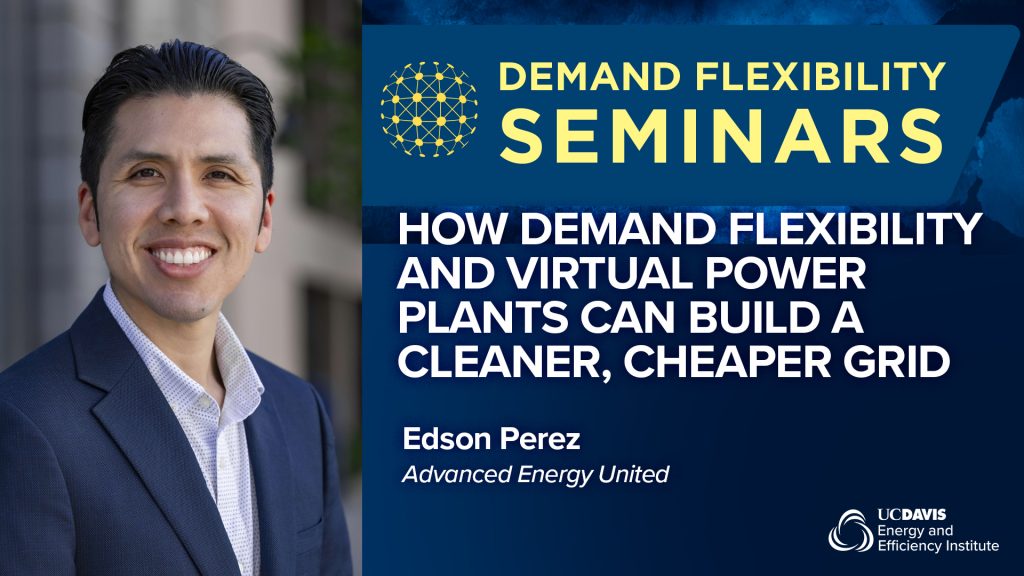
Thursday, April 17th, 2025 | 12:00 – 1:00 pm Edson Perez, Senior Principal, Advanced Energy United Watch Video Location: 1605 Tilia Street, Suite 100, Davis, CA Join UC Davis alumnus and Advanced Energy United’s Edson Perez for a conversation on how smart technologies—like EVs, batteries, and thermostats—can come together as Virtual Power Plants (VPPs) to […]
Beyond the Seminar: Justice Pathways for Meaningful Careers and Resilient Communities
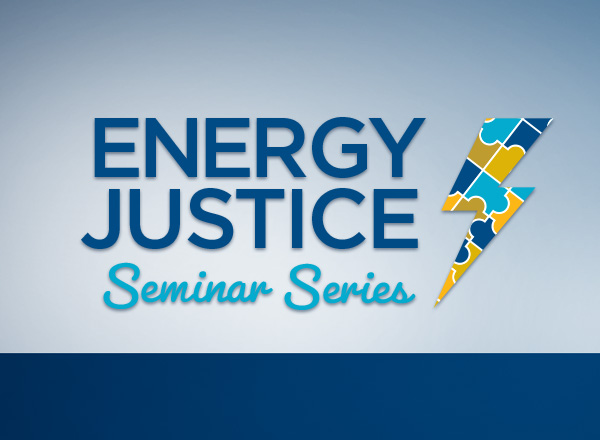
Thursday, March 13th, 2025 Kristi Dayemo, NBEJN Jessica Dunn, Clean Transportation Program Kabian Ritter, Stealth Mode Meg Slattery, Earthjustice This seminar features four Energy Graduate Group alumni sharing their experiences working at the intersection of energy and environmental justice. The seminar explores career pathways, impactful projects, and strategies for advancing equity and resilience in the […]
¿Green sacrifice zones in Chile? Threats and risks of mining and energy expansion in the territories and ecosystems of the Atacama Desert

Thursday, March 6th, 2025 Gabriela Cabaña, Sociologist and Social Anthropologist, London School of Economics and Political Science Ramón Balcázar, PhD candidate in Rural Development, Autonomous Metropolitan University Watch Video In the context of the global climate emergency, the Chilean state has committed to the supply of materials needed for decarbonisation. This region, which concentrates the […]
Special Webinar: Pathways to utilize locally available biomass residues in materials production
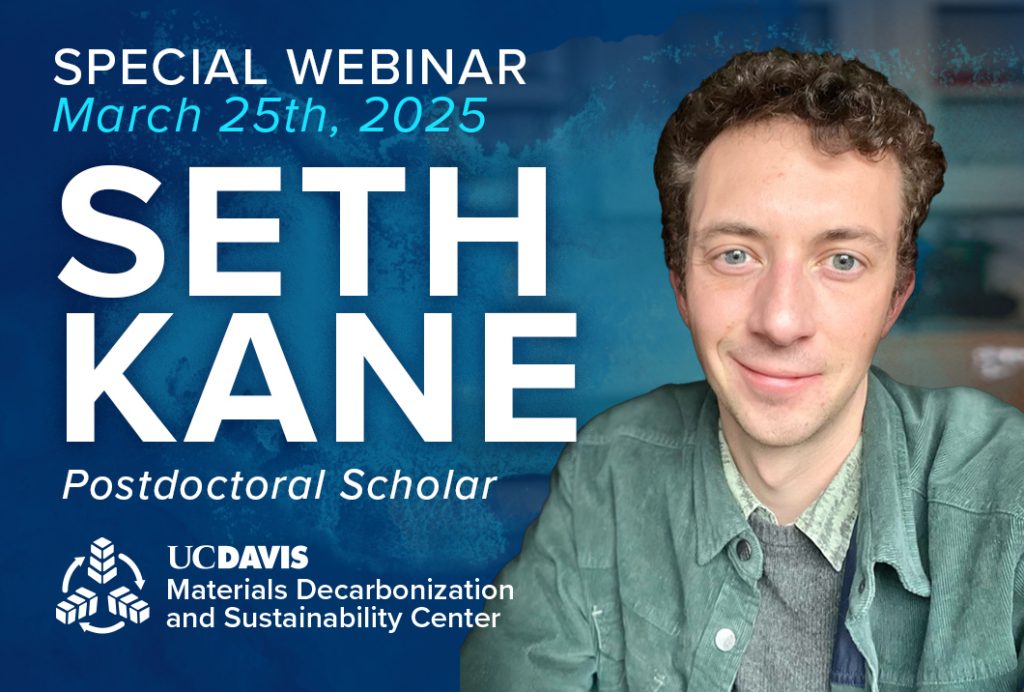
Tuesday, March 25th, 2025 | 1:00 – 2:00 pm Seth Kane, Postdoctoral Scholar, UC Davis Materials Decarbonization and Sustainability Center Watch Video Global materials production, as of 2019, exceeded 42.8 Gt and was responsible for over 25% of global anthropogenic greenhouse gas emissions. Simultaneously, global forestry and agriculture resulted in 9 Gt of underutilized biomass […]

